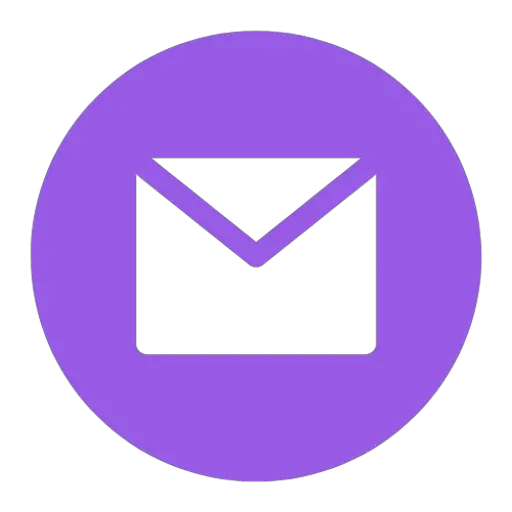Welcome to another informative article on email communication. As experts in crafting effective messages, we understand the importance of finding the right words to convey your intentions clearly.
In this article, we will delve into the phrase “Does that work for you?” and explore its various applications in email communication.
We will provide you with practical examples and alternative ways to express the same idea. Let’s enhance your email skills and ensure your messages resonate with your recipients.
Contents
- How to Use “Does That Work for You” in an Email
- “Does That Work for You” Email Examples
- Example 1 – Subject: Lunch Meeting
- Example 2 – Subject: Travel Arrangements
- Example 3 – Subject: Team Meeting Rescheduling
- Example 4 – Subject: Marketing Campaign Feedback
- Example 5 – Subject: Request for Document Review
- Example 6 – Subject: Departmental Training Session
- Example 7 – Subject: Request for Project Extension
- Example 8 – Subject: Team Outing Poll
- Example 9 – Subject: Client Meeting Confirmation
- Example 10 – Subject: Request for Additional Resources
- Alternative Ways to Say “Does That Work for You” in an Email
How to Use “Does That Work for You” in an Email
When it comes to seeking agreement, clarification, or accommodating someone’s preferences, the phrase “Does that work for you?” can be a valuable tool.
It expresses openness and consideration for the other person’s needs. By using this phrase appropriately, you can foster effective collaboration and build stronger professional relationships.
Now, let’s move on to the next section, where we will examine ten real-life email examples that demonstrate the application of “Does that work for you?” in different contexts.
“Does That Work for You” Email Examples
Example 1 – Subject: Lunch Meeting
Hi [Recipient’s Name],
I hope this email finds you well. I was wondering if we could schedule a lunch meeting next Monday to discuss the upcoming project. We could meet at [Restaurant Name] around 12:30 p.m. Does that work for you? Please let me know if you have any conflicts or if there’s a more convenient time for you.
Best regards,
[Your Name]
Example 2 – Subject: Travel Arrangements
Dear [Recipient’s Name],
I hope you had a great weekend. I’m finalizing the travel arrangements for the conference, and I wanted to confirm the dates with you. The conference is scheduled for [Dates]. I have checked flight options, and the best one departs on [Date] at [Time]. Does that work for you? Please let me know so I can proceed with booking the tickets.
Thank you,
[Your Name]
Example 3 – Subject: Team Meeting Rescheduling
Hello [Recipient’s Name],
Due to unforeseen circumstances, we need to reschedule the team meeting originally planned for tomorrow. I propose moving it to [New Date] at [New Time]. Does that work for you? If not, please suggest an alternative time that would suit you and the team. We want to ensure everyone’s availability.
Regards,
[Your Name]
Example 4 – Subject: Marketing Campaign Feedback
Hi [Recipient’s Name],
I hope you’re doing well. I wanted to share the initial draft of our upcoming marketing campaign with you. Please review the attached document and let me know your thoughts. We’re particularly interested in your opinion on the visuals and the overall messaging. Does that work for you? Your feedback is valuable in shaping the final version.
Thank you,
[Your Name]
Example 5 – Subject: Request for Document Review
Dear [Recipient’s Name],
I trust this email finds you in good health. We are in the final stages of preparing the [Document Name] and would greatly appreciate your expertise in reviewing it. I will send the document to you shortly. Could you please go through it and provide your input by [Deadline]? Does that work for you? Your insights will be instrumental in ensuring the document’s quality.
Best regards,
[Your Name]
Example 6 – Subject: Departmental Training Session
Hello [Recipient’s Name],
I hope you’re having a productive week. Our department is organizing a training session on [Topic] next week. We aim to enhance our skills and share knowledge within the team. The proposed date and time for the session are [Date] at [Time]. Does that work for you?
If you have any scheduling conflicts or suggestions for an alternative time, please let us know. We want to ensure maximum participation and accommodate everyone’s availability.
Thank you,
[Your Name]
Example 7 – Subject: Request for Project Extension
Dear [Recipient’s Name],
I hope this email finds you well. As we near the deadline for the [Project Name], I wanted to discuss the possibility of extending the timeline by [Number of Days/Weeks]. This will allow us to address unforeseen challenges and ensure the delivery of a high-quality outcome. Does that work for you? Please share your thoughts and let us know if you foresee any issues with this extension.
Kind regards,
[Your Name]
Example 8 – Subject: Team Outing Poll
Hi [Recipient’s Name],
As a way to strengthen team bonds and reward our hard work, we are planning a team outing. I’ve created a poll with different options for the outing. Could you please take a moment to vote and indicate your preferred choice? The link to the poll is [Insert Poll Link]. Does that work for you? We value your input in making this event enjoyable for everyone.
Thank you,
[Your Name]
Example 9 – Subject: Client Meeting Confirmation
Hello [Recipient’s Name],
I hope this email finds you well. We would like to confirm our upcoming meeting with [Client’s Name] on [Date] at [Time]. Our team is prepared to discuss the agenda items we shared earlier. Does that work for you? If you have any additional topics you’d like to cover or any specific requirements, please let us know. We want to ensure a productive and successful meeting.
Best regards,
[Your Name]
Example 10 – Subject: Request for Additional Resources
Dear [Recipient’s Name],
I wanted to discuss the resource allocation for the [Project Name]. Based on the current workload and project requirements, we believe that additional resources would greatly contribute to its successful completion. We suggest allocating [Number of People] to support our team. Does that work for you? We appreciate your consideration and look forward to your decision.
Sincerely,
[Your Name]
Alternative Ways to Say “Does That Work for You” in an Email
While “Does that work for you?” is a commonly used phrase, it’s always beneficial to have alternatives at your disposal. Here are a few variations you can incorporate into your email communication:
- Is that suitable for you?
- Would that be convenient?
- Could you accommodate this arrangement?
- Are you okay with this proposal?
- Does this plan align with your schedule?
- Is this timeline acceptable to you?
- Can we proceed with this approach?
- Are you on board with this suggestion?
- Would you be comfortable with this arrangement?
- Is there any issue with this proposal?
Feel free to utilize these alternatives based on the specific context of your email, allowing you to diversify your language and maintain professionalism.
Mastering effective email communication is essential in the professional world. By incorporating phrases like “Does that work for you?” appropriately, you can demonstrate your willingness to accommodate others’ needs and foster productive collaborations.
Remember to choose the right alternative when the situation calls for it. With these email examples and alternative suggestions, we hope you feel more confident in crafting impactful messages that resonate with your recipients. Good luck and happy emailing!


